
Anton Franz Edthofer was an Austrian actor.

Dagny Servaes was a German-Austrian stage and film actress. In the theatre she appeared in the productions of Max Reinhardt and Berthold Brecht. Servaes appeared in around sixty films during her career, initially in lead and later in supporting roles. One of her earliest screen performances was in the 1917 propaganda film Dr. Hart's Diary. She also voiced the character of the evil queen in a German language dub of Disney's Snow White and the Seven Dwarfs made for the Austrian market in 1938.

Peter the Great is a 1922 German silent historical film directed by Dimitri Buchowetzki and starring Emil Jannings, Bernhard Goetzke and Dagny Servaes. It depicts the life of the reformist Russian Tsar Peter the Great. It premiered in Berlin on 2 November 1922. The film's art direction was by Hans Dreier.

The Deruga Case is a 1938 German crime drama film directed by Fritz Peter Buch and starring Willy Birgel, Geraldine Katt and Dagny Servaes. It is based on the 1917 novel of the same title by Ricarda Huch. It was shot at the Babelsberg Studios in Potsdam. The film's sets were designed by the art directors Wilhelm Depenau and Ludwig Reiber.

Mirror of Life is a 1938 Austrian drama film directed by Géza von Bolváry and starring Peter Petersen, Paula Wessely, and Attila Hörbiger. The film's sets were overseen by art director Julius von Borsody.
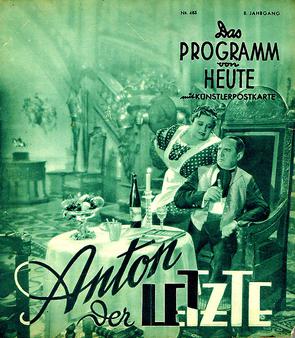
Anton the Last is a 1939 comedy film directed by E. W. Emo and starring Elfriede Datzig, Hans Moser, and O. W. Fischer. The film was made by Wien-Film, a Vienna-based company set up after Austria had been incorporated into Greater Germany following the 1938 Anschluss.

Suburban Cabaret is a 1935 Austrian musical drama film directed by Werner Hochbaum and starring Mathias Wieman, Luise Ullrich and Oskar Sima. It was shot at the Sievering Studios in Vienna. The film's sets were designed by the art director Alfred Kunz. It is based on the play Der Gemeine by Felix Salten.
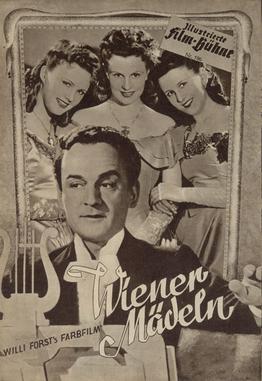
Viennese Girls is a 1945 historical musical film directed by Willi Forst and starring Forst, Anton Edthofer and Judith Holzmeister. The film was made by Wien-Film, a Vienna-based company set up after Austria had been incorporated into Greater Germany following the 1938 Anschluss. It was the third film in Forst's "Viennese Trilogy" which also included Operetta (1940) and Vienna Blood (1942). The film was finished in 1945, during the closing days of the Second World War. This led to severe delays in its release, which eventually took place in 1949 in two separate versions. One was released by the Soviet-backed Sovexport in the Eastern Bloc and the other by Forst.
The Queen of the Landstrasse is a 1948 Austrian romance film directed by Géza von Cziffra and starring Angelika Hauff, Rudolf Prack and Hermann Erhardt. The film's sets were designed by art director Fritz Jüptner-Jonstorff.
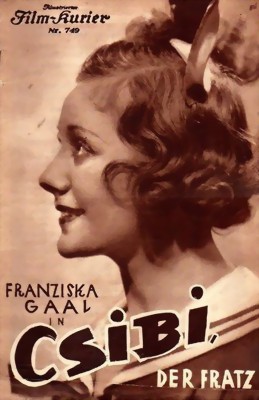
A Precocious Girl is a 1934 Austrian comedy film directed by Max Neufeld and Richard Eichberg and starring Franciska Gaal, Leopoldine Konstantin and Herbert Hübner. The film's sets were designed by art director Julius von Borsody.
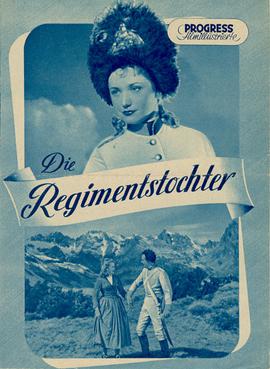
Daughter of the Regiment is a 1953 Austrian historical comedy film directed by Georg C. Klaren and starring Aglaja Schmid, Robert Lindner, and Hermann Erhardt. It is based on the storyline of the 1840 opera La fille du regiment by Gaetano Donizetti. The plot had previously been used for a 1929 silent film and a 1933 sound film, and another film version was made during 1953 by Géza von Bolváry.

Seven Years Hard Luck is a 1940 German romantic comedy film directed by Ernst Marischka and starring Hans Moser, Ida Wüst and Olly Holzmann.
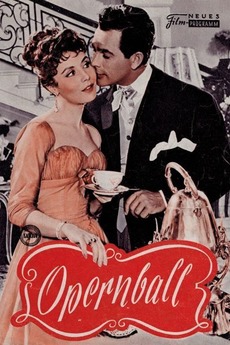
Opera Ball is a 1956 Austrian musical comedy film directed by Ernst Marischka and starring Johannes Heesters, Hertha Feiler and Josef Meinrad. Based on the 1898 operetta Der Opernball, it is part of the operetta film tradition. A previous film version had been made in 1939.
The Sacrifice is a 1918 German silent drama film directed by Joe May and starring Mia May, Harry Liedtke and Anton Edthofer.
The Tales of Hoffmann is a 1923 Austrian silent film directed by and starring Max Neufeld. The film also features Karl Ehmann, Eugen Neufeld and Robert Valberg.

Wedding in the Hay is a 1951 Austrian-German comedy film directed by Arthur Maria Rabenalt and starring Oskar Sima, Inge Egger and Kurt Seifert. It was shot at the Schönbrunn Studios in Vienna and the Bavaria Studios in Munich. The film's sets were designed by the art director Felix Smetana.
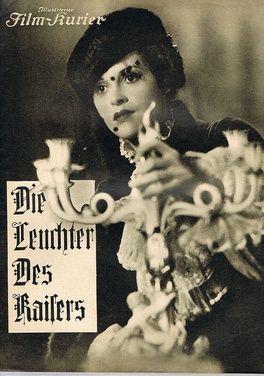
The Emperor's Candlesticks is a 1936 Austrian historical adventure film directed by Karl Hartl and starring Sybille Schmitz, Karl Ludwig Diehl and Friedl Czepa. It is an adaptation of Baroness Orczy's 1899 novel The Emperor's Candlesticks. A Hollywood film version of the story The Emperor's Candlesticks was released the following year.
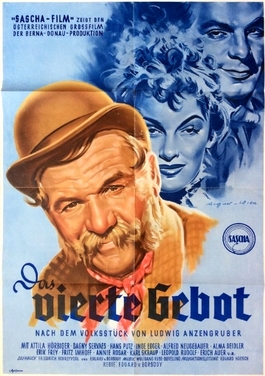
The Fourth Commandment is a 1950 Austrian historical drama film directed by Eduard von Borsody and starring Attila Hörbiger, Dagny Servaes and Inge Egger. It was shot at the Sievering Studios and on location in the Vienna Woods. The film's sets were designed by the art director Gustav Abel. It was released in West Germany the same year by Union Film. It is based in the 1878 play of the same name by Ludwig Anzengruber.
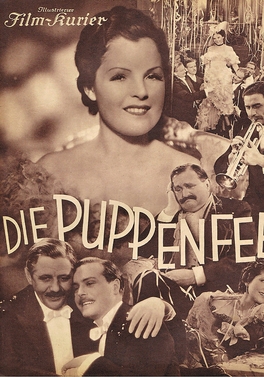
The Fairy Doll is a 1936 Austrian romance film directed by E.W. Emo and starring Adele Sandrock, Magda Schneider and Paul Hörbiger. It is based on the 1888 ballet work Die Puppenfee composed by Josef Bayer, owing more to the score than the libretto. The film's sets were designed by the art director Julius von Borsody. It marked the screen debut of future star Hilde Krahl.
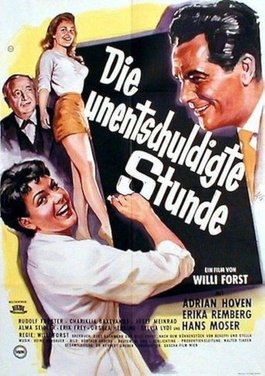
The Unexcused Hour is a 1957 Austrian-West German comedy film directed by Willi Forst and starring Adrian Hoven, Erika Remberg and Hans Moser. It is a remake of the 1937 film of the same title. It was shot at the Sievering Studios in Vienna. The film's sets were designed by the art directors Karl-Hermann Joksch, Isabella Schlichting and Werner Schlichting.

















